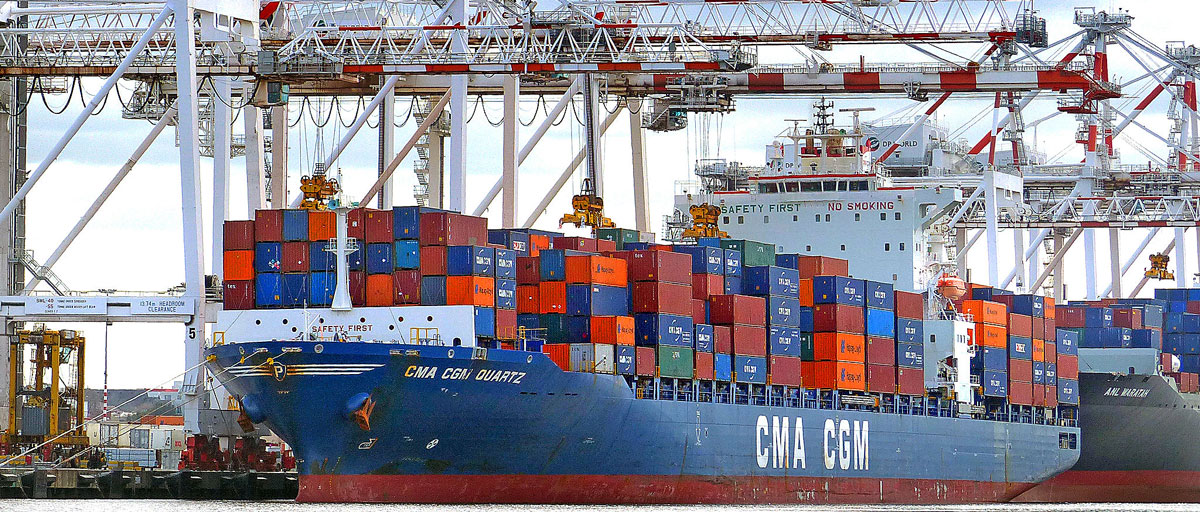Bildtext får vara max två rader text. Hela texten ska högerjusteras om den bara ska innehålla fotobyline! Photo: B. Christensen/Azote
OCEAN SUPPLY CHAINS
Global shortages loom as Covid-19 is disrupting supply chains
- Global ocean-related supply chains are at risk of serious disruption
- Almost 90 per cent of the global trade of goods is carried by vessels
- The UN Global Compact has published a set of recommendations for urgent political action to keep global ocean-related supply chains moving
United Nations Global Compact urges governments to work together to keep ocean-related supply chains moving
Delays and disruptions in the supply of goods produced at and shipped by sea will cause significant shortages if governments do not work together to keep global ocean-related supply chains moving during the COVID-19 pandemic, the United Nations Global Compact (UNGC) warns.
The UNGC is an initiative designed to encourage businesses worldwide to adopt sustainable and socially responsible policies.
The Stockholm Resilience Centre is an official member of the UNGC and part of a recently established Covid19 task force.
Urgent personell challenges
Almost 90 per cent of the global trade of goods is carried by vessels. A critically urgent problem concerns changeover of essential personnel needed for safe and continuous operations.
Ocean-based supply chains are also challenged. Offshore operations produce a third of global energy supplies, and mariculture and capture fisheries constitute vitally important sources of food and animal feeds.
The UN Global Compact has published a set of recommendations for urgent political action to keep global ocean-related supply chains moving.
The recommendations are a consolidation of the work of the COVID-19 Task Force initiated by the initiative's Action Platform for Sustainable Ocean Business.
The Stockholm Resilience Centre is a scientific partner to the platform.
This crisis has sparked unprecedented collaboration and cooperation. It’s our responsibility to maintain this as we plan for a more resilient future.
Robert Blasiak, centre researcher and member of the COVID-19 Task Force
Recommendations
The set of 14 recommended actions represents a comprehensive, global approach to ensure the continuing safe and efficient function of ocean-related supply chains during the COVID-19 pandemic, including:
- Establishing a dedicated Ocean Supply Chain Task Force championed by a coalition of willing governments
- Adopting an internationally-recognized "key worker’" status system and enabling unhindered movement across international borders of personnel critical to the safety and integrity of the ocean-related supply chains
- Pursuing a consistent, uniform and evidenced-based approach to granting exemption measures across marine jurisdictions on vessel and personnel certification and classification
- Establishing a set of indicators that could serve to identify actual and potential disruptions in the ocean-related supply chains










